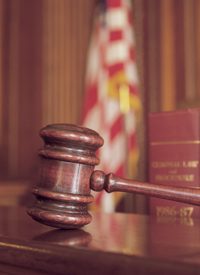
U.S. District Judge Benjamin Settle ruled October 17 that Protect Marriage Washington (PMW), the conservative, pro-family group that had organized the petition drive, had not demonstrated “serious and widespread threats, harassment, or reprisals against the signers of R-71, or even that such activity would be reasonably likely to occur upon the publication of their names and contact information.”
Referendum 71, which would have overturned the Washington law that gave domestic partners all the rights of married couples, was ultimately rejected by state voters by a 53 to 47 percent margin. “In the weeks after the referendum, several groups requested copies of the R-71 petition, which Protect Marriage used to place the referendum on the ballot,” reported Courthouse News. “The initiative’s conservative supporters sued Washington in 2009 to keep the names of 137,000 people who signed its petition secret, saying the release under the Washington’s Public Records Act violated their civil rights and there was a ‘reasonable probability’ that signees would be harassed.”
While a federal judge initially blocked release of the names, in October 2009 the 9th Circuit Court of Appeals overturned that ruling, which prompted U.S. Supreme Court Justice Anthony Kennedy to order another temporary block, keeping the names from public record as the High Court justices reviewed the case.
“In June 2010, the court ruled 8-1 to release the signatures, leaving open the possibility that threats posed to petition signers could warrant an exception to the Public Records Act,” reported Courthouse News. But in his ruling, “Settle said the exemption from public disclosure Protect Marriage sought had been upheld in only a few cases that protected the membership names of the National Association for the Advancement of Colored People (NAACP) and the Socialist Worker Party (SWP),” reported Courthouse News.” In his 34-page decision the federal judge ruled that PMW had not “provided competent evidence that it is in any material way similar to the organizations, groups, or parties who have received the as-applied exemption in the past.”
The ruling, noted PMW in a press release, left the signers open to the wrath of radical homosexual activists who had earlier promised retaliation. Wrote the group’s president, Larry Stickney: “Evidence brought forward by Protect Marriage Washington included death threats, extensive vandalism, overt threats of destruction of property, arson and threats of arson, intimidating emails and phone calls, hate mail, mailed envelopes containing white suspicious powder, blacklists, loss of employment and job opportunities, and gross expressions of anti-religious bigotry, including vandalism and threats directed at religious institutions and religious adherents — all for doing nothing more than standing up for traditional marriage. Nevertheless, Judge Settle wrote that Protect Marriage Washington was unable to prove ‘a reasonable probability that the threats, harassment, or reprisals exists as to the signers of R-71.”
According to World Net Daily, the following is a sample of the documented threats made against the petitions signers:
— “I will kill you and your family.”
— “We’re going to kill you.”
— “You’re dead. Maybe not today, maybe not tomorrow, but soon … you’re dead.”
— “I warn you, I know how to kill; I’m an ex-special forces person.”
— “Get ready for retribution all you bigots.”
— “Burn their f***ing churches to the ground, and then tax the charred timbers.”
PMW attorney Stephen Pidgeon said that Settle’s decision was a “dramatic setback to the right of privacy in the state of Washington. There were death threats, acts of violence, harassment and published declarations that there would be harassment. The court erred.”
Meanwhile, at least one homosexual activist group, Know Thy Neighbor, said that it would begin to leak the names, made available by the state for $15, to homosexuals who were looking for people they may know. The group’s director, Tom Lang, told Washington’s NPR radio station KUOW that the group would publish the names in an online searchable database, allowing homosexuals and their friends to search out petition signers they are familiar with and confront them.
Lang cited examples of “people who’ve been in people’s weddings parties and they’ve signed, people in families where the grandmother signed knowing darned well that her grandson was gay. These are the types of conversations that are being had.”
While Lang denied that his group was carrying out a campaign of intimidation or harassment, Gary Randall of the pro-family Faith and Freedom Network, which had participated in the petition drive, warned that releasing the signatures would nonetheless create “a chilling effect on all future initiative efforts regarding homosexual efforts to redefine the culture. The decision to release the names is bad news for Washington State. I believe there will be more harassment, and I pray to God there isn’t more than that.”
Ironically, in his ruling against PMW, Judge Settle agreed that intimidation — and even violence — was a distinct possibility, writing in his decision that while the pro-family group had not demonstrated the presence of widespread threats against the petition signers, they had nonetheless shown “substantial evidence” that the debate over the definition of marriage had “engendered hostility in this state, and risen to violence elsewhere.”
Concluded the judge, unintentionally arguing against his own verdict: “This should concern every citizen and deserves the full attention of law enforcement when the line gets crossed and an advocate becomes the victim of a crime or is subject to a genuine threat of violence.”



